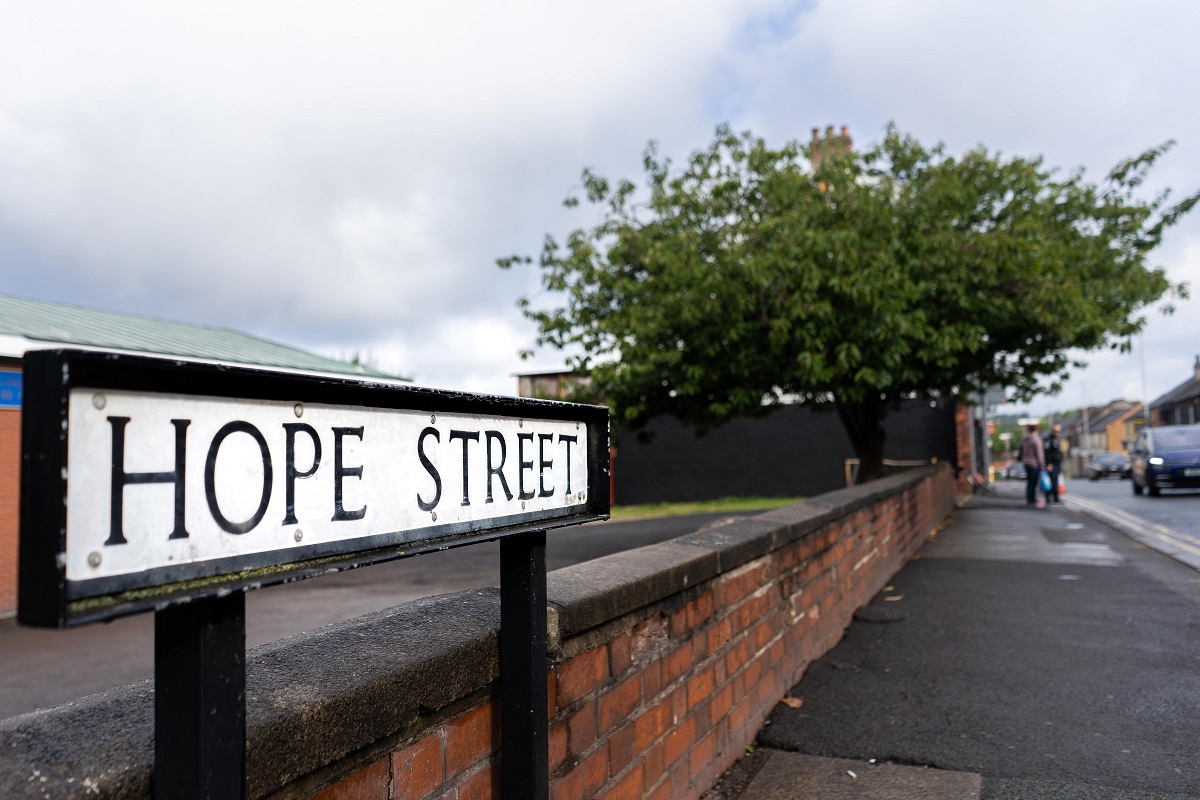All systems go or stalled - what is happening with the regeneration vision for Stoke-on-Trent?
"It takes more than a few projects to address what are deep structural economic and social problems."
A “thriving new neighbourhood”, a “stunning” mixed-use development promising to revitalise the city centre, and a “striking” new arena that will be a focal point of the city.
Stoke-on-Trent's plans to ‘level up’ were ambitious but in 2021 they seemed to be moving closer to a reality. The city council, then under Conservative leadership, was successful in securing £56m of the government’s Levelling Up fund to accelerate progress on three transformational schemes across the city.
Two years on and much of the work that promised to transform the city has stalled or been scrapped. The now Labour-controlled council has claimed just £21.3m of the funds is successfully bid for and the clock is ticking for it to spend the remaining £34m before their deadline in March 2025.
The current Labour administration insists it’s all systems go, whereas the Tories have been vocal about the lack of progress. Conservative councillor Daniel Jellyman raised concerns late last year.
"We've been warning residents,” he told the BBC in October. “Saying there's a real risk that part of the £56m will be handed back to government, because of total inaction from the council since May.”
The government says Levelling Up is “breathing new life into businesses and regions across the UK”. It’s about “growing the economy, creating jobs and supporting communities”. But much of the work in Stoke-on-Trent remains to be seen.
David Etherington is a professor in digital, tech, innovation and business at Staffordshire University. He has a wealth of experience working in local government, having previously coordinated large-scale multi-million pound urban regeneration and economic development projects for Sheffield City Council.
He points out that, under austerity measures, Stoke City Council has been forced to make £270m in savings and does not believe in the transformative power of the government’s Levelling Up fund.
“After 40 years on from the accelerated pit closure programme, Stoke and similar areas has never really recovered from the loss of jobs in the mining and other industries,” he said. “It takes more than a few projects to address what are deep structural economic and social problems.
“To me Levelling Up is a soundbite with little meaning given the fact that we have faced years of austerity which is contributing to economic and social inequalities. The main public services – local government, and health, have been cut to the bone. These services are vital to economic and social regeneration.”
A change in leadership locally has no doubt impacted the plans, as have the complexities of developing heritage sites sensitively within the confines of tight deadlines. The bidding process also speaks to broader problems in the way central government doles out funds to local authorities, who are given limited control over how national investment should be spent in their areas.
Levelling Up delayed
Stoke-on-Trent is not alone in the challenges it has faced to spend the funding it has been allocated. Last month, a House of Commons Committee report on Levelling Up was handed to the government, which has been given two months to respond.
It revealed that of the £10.47 billion total funding across three significant funds from central government to be spent over the period 2020-21 to 2025-26, including Levelling Up, by December 2023 local authorities had received only £3.70 billion and only £1.24 billion had actually been spent.
Of the projects actually underway, many have been delayed despite being chosen for being “shovel-ready”. Over 80% of the Levelling Up Fund Round 1 projects were set to miss their March 2024 completion deadline.
The Department for Levelling Up, Housing and Communities “could not give any compelling examples of what had been delivered so far”, the report said. And impactful bids to the may have missed out at the expense of the so-called “shovel-ready” projects.
“We are concerned that there is a worrying lack of transparency in the department’s approach to awarding funds. This approach has wasted scarce public resources,” the report said.
In the face of this dysfunction, Stoke City Council has forged ahead with the government’s Levelling Up agenda, focusing on three main projects. There is the neighbourhood development in the Goods Yard in Stoke; the heritage-led regeneration of Spode Works, Tunstall Library and Baths, and Crown Works in Longton; and the development of Etruscan Square in Hanley, where multiple planned regeneration schemes have already failed to become reality.
Previous incarnations of plans for the derelict patch of city centre land, close to Stoke-on-Trent’s main shopping area, include a £170m shopping centre proposed as far back as 1999 and latterly the controversially-named City Sentral complex.
Etruscan Square
The masterplan for with Levelling Up funding at Etruscan Square was to create a “stunning mixed-use development” comprising residential and leisure facilities, including a 3,600-capacity concert venue.
But the plans for the Hanley site – once home to the East West shopping precinct and bus station – were dealt a major blow last autumn when the indoor arena element was ditched by the new Labour administration, who felt the need for housing in the city was more pressing.
In the original application, the events space was described as a “striking, contemporary building and focal point which together with a commercial centre, hotel and opportunities for a range of outlets, would stimulate sustainable growth of jobs and employment, bringing people into the city”.

The original vision for Etruscan Square
The council claimed the major change to plans would reflect the “changing needs of the city and a changing economic climate”.
“The city council is looking to secure a development partner to deliver the residential opportunity at Etruscan Square, with scope for 300 new apartments, along with a package of key housing sites across the city,” a council spokesperson told The Stoke-on-Trent Lead.
Just £3.75 million of the £20m allocated for this scheme has been claimed for preliminary works.
“Full planning approval has been secured for phase 1 with outline planning for the wider site,” the council said. “Site surveys have been carried out and remediation works are planned for Summer 2024.”
Spode Works
Over at the Spode Works the council has also faced insurmountable challenges. The former pottery, which closed in 2008, holds huge historical significance for the city. The factory was the first to mass-produce bone china and the town of Stoke was built around it.
Spode is the largest of three Heritage Towns Projects earmarked for Levelling Up, the others being in Tunstall and Longton. The overall project was allocated £20m, £10m of which was for Spode, but just £1.53m has currently been spent across all three sites.
The council’s masterplan for the site was originally to create “a unique living and creative” community. “Residents will be part of an attractive, car free and safe neighbourhood with outdoor spaces for sharing and enjoying,” it said.
The scheme was subject to setbacks after Nimrod Holdings Group, the company chosen to develop plans for the former pottery, was dissolved in October last year.
The original proposals were scrapped and the council is now in the process of drawing up new plans.
The council said it has appointed a consultant to develop a delivery strategy for the site in consultation with local stakeholders, once complete over the next month investment decisions will be made for the site.
Another of the Heritage Towns Projects earmarked for development is the Grade II-listed former Tunstall Library and Baths.
Tunstall Library Developments Limited, who has acquired the distinctive Victorian property, is hoping to transform the heritage asset to the tune of £8m. The development will feature apartments and family homes, as well as a gym and community space.
The council said it is progressing the scheme ready to submit for planning permission this spring.
The final aspect of the Heritage Towns Project looks to repurpose the derelict former Crown Works factory in Longton. Planning approval is in place for OVI Homes to build 59 apartments for the over 55s and communal gardens at a cost of £6.5m. Enabling works have started on site and a main contractor has been appointed.

The work on Goods Yard is due for completion next year
Things are looking far more optimistic over at Goods Yard, where tangible bricks and mortar progress is taking place. Construction of this “thriving new neighbourhood” next to the city’s main railway station began in late 2022 and is due for completion next year.
The council has claimed the full £16m of Levelling Up funds for the site, which has received a total of £60m total investment.
“Goods Yard is in construction with completion due Spring 2025,” a council spokesperson said. “This new neighbourhood will be home to 174 stylish apartments, enterprise space, bars, eateries, stores and a green public square. This will link into the rail station providing new connectivity between the station and Stoke town centre.”
Tasked with delivering all these regeneration schemes is Carol Gibbs, who was appointed the new director of housing, development and growth in March.
Of her new challenge, Gibbs said: “I am looking forward to continuing to work with partners and residents to help make a city we can all be proud of. I am incredibly fortunate to have a great team helping to lead the way. I am looking forward to delivering the many exciting programmes and projects in the pipeline.”
Etherington says that while the initiatives earmarked for Levelling Up funds may be worthwhile but suggests the money could be used more effectively elsewhere.
“Major investments in public services, social security and childcare combined with a national industrial strategy are required to revitalise the local economy and address high rates of poverty,” he said. “In the bigger picture there is a cost of living crisis and thousands struggling to make ends meet. This is the reality in Stoke-on-Trent today.”
You can see the previous newsletter we sent to our subscribers here
The Lead is now on Substack.
Become a Member, and get our most groundbreaking content first. Become a Founder, and join the newsroom’s internal conversation - meet the writers, the editors and more.





